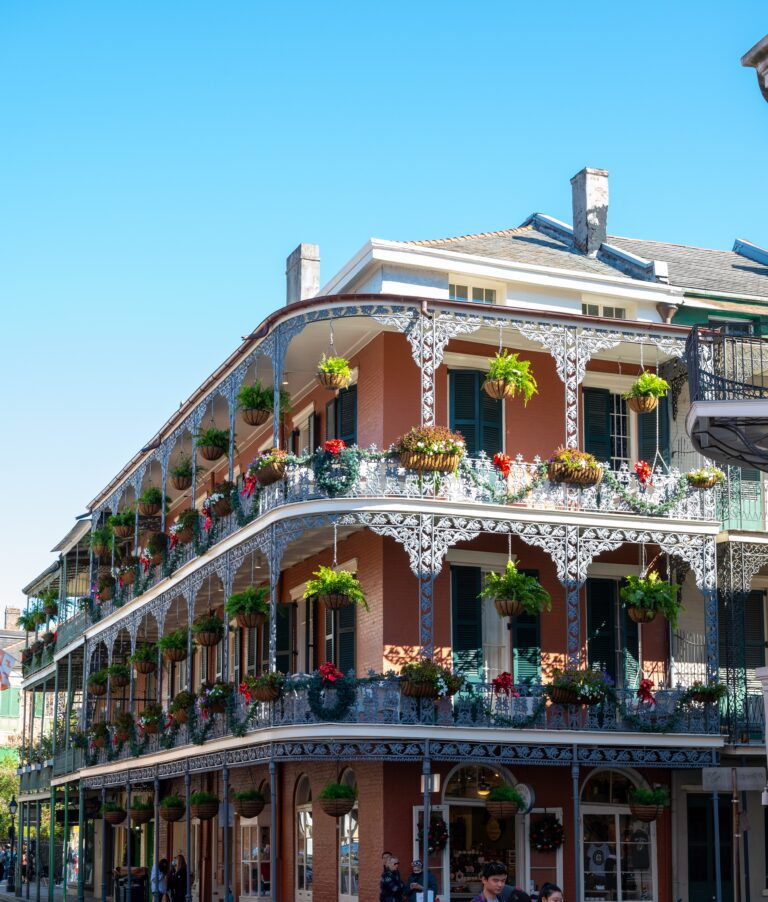Iceland is a fairly small country, but it’s not so small that you won’t be able to find something to do and see. There are many sights and experiences you can have in Iceland, as well as plenty of places where you can connect with other travelers. If you’re thinking is Iceland safe to travel alone then here we cover the complete solo travel guide in Iceland.
Iceland is one of the safest countries in Europe to travel alone. The country has a low crime rate and the people are known for being friendly and welcoming. However, it is always a good idea to be aware of your surroundings and to take the usual precautions. You should also be prepared for the weather and terrain in Iceland, as it can be quite different from other places you may have visited.
Is Iceland safe at night?
Iceland is generally a safe country, including at night. However, as with any place, it is always a good idea to take precautions to protect yourself and your belongings. It is a good idea to be aware of your surroundings and to avoid walking alone in poorly lit or isolated areas.
It is also a good idea to keep an eye on your belongings and to avoid leaving them unattended in public places. Overall, as long as you use common sense and take basic safety precautions, you should have a safe and enjoyable stay in Iceland.
What should you not do in Iceland?
There are a few things that tourists should be aware of when visiting Iceland:
- Respect the natural environment: Iceland is home to many unique and fragile ecosystems, so it is important to be mindful of your impact. Avoid littering and do not damage any natural habitats or leave any trace of your visit.
- Respect the locals: Icelanders are friendly and welcoming people, but it is important to respect their culture and traditions. This includes avoiding loud or disrespectful behavior and being mindful of local customs.
- Don’t rely on your GPS: Iceland’s roads and landmarks can be difficult to locate using GPS, as the country’s landscape is constantly changing due to volcanic activity and other natural forces. It is a good idea to bring a map and pay attention to road signs when driving.
- Don’t neglect safety precautions: Iceland can be a dangerous place for those who are unprepared. Be sure to bring warm clothing and proper gear when hiking or traveling in the countryside, and be mindful of potential hazards such as strong winds, slippery roads, and unpredictable weather.
- Don’t ignore road rules: Iceland has strict traffic laws that are strictly enforced. Be sure to familiarize yourself with these laws and follow them at all times to avoid any accidents or fines.
Can you travel Iceland by yourself?
Yes, it is possible to travel to Iceland on your own. Many people travel to Iceland independently and have a great time exploring the country. It is a very safe place to travel and there are a variety of transportation options available, including rental cars, buses, and flights. There are also many tour companies that offer guided tours of Iceland if you prefer to have someone else handle the logistics for you.
Why is Iceland good for solo travel?
There are several reasons why is Iceland good for solo travel. Here are a few more reasons:
- Iceland is a very safe country, so you can feel confident traveling there on your own.
- The people of Iceland are known for being friendly and welcoming, so you should have no trouble making connections and finding people to spend time with while you’re there.
- Iceland has a lot of natural beauty and outdoor activities to enjoy, so it’s a great destination for solo travelers who enjoy being active and exploring the great outdoors from geysers and hot springs to waterfalls and glaciers. These attractions are easy to visit on your own, and many of them have well-marked trails and visitor centers to help you get the most out of your experience.
- There are many organized tours and activities available in Iceland that are specifically geared towards solo travelers, so it’s easy to meet other people and join in group activities.
- Iceland has a thriving arts and culture scene, with many interesting museums, galleries, and events to explore.
- Iceland is a very easy country to navigate. The roads are well-maintained and easy to drive on, and the public transportation system is reliable and efficient. This makes it easy for solo travelers to get around and explore on their own.
- Iceland has a wide range of accommodation options to suit different budgets and preferences, from cozy guesthouses to luxury hotels. This makes it easy for solo travelers to find a place to stay that meets their needs.
- Iceland is home to a wide range of natural wonders,
- Iceland has a rich cultural history and a thriving contemporary arts scene. There are many museums, galleries, and cultural events to explore, and many of these are suitable for solo travelers.
- Iceland is a great destination for outdoor enthusiasts, with many opportunities for hiking, skiing, and other outdoor activities. These activities are easy to enjoy on your own, and there are many tour companies and outdoor guides who can help you plan your trip and make the most of your time in Iceland.
Overall, Iceland is a great destination for solo travelers who want to experience a unique and beautiful country while meeting new people and trying new things. Iceland is a welcoming and easy-to-navigate destination that has something for everyone, making it a great choice for solo travelers.
How many days do you need in Iceland?
There is no one-size-fits-all answer to this question, as the amount of time you need to spend in Iceland will depend on your interests and the activities you want to do while you are there. If you want to experience a wide range of activities and see many different parts of the country, you may want to plan for a longer trip of at least one week.
This will give you enough time to visit the major attractions, such as the Golden Circle, the Blue Lagoon, and the Vatnajökull glacier, and also allow you to venture off the beaten path and explore some of the more remote regions of the country.
If you are short on time or have a more specific set of activities in mind, you may be able to get a good sense of Iceland in a shorter trip of four or five days. Ultimately, the length of your trip will depend on your own interests and priorities.
How much money do you need per day in Iceland?
The cost of living in Iceland can vary significantly depending on your personal spending habits and the type of trip you are taking. However, a rough estimate for daily expenses in Iceland is around 10,000-15,000 Icelandic krona (ISK) per day, or about $100-150 USD.
This estimate includes the cost of accommodation, food, transportation, and activities, but does not include the cost of flights to and from Iceland. It’s worth noting that prices in Iceland can be higher than in many other countries, particularly for things like food and accommodation.
If you are traveling on a budget, you may be able to reduce your daily expenses by opting for cheaper accommodation options, such as camping or staying in hostels, and by cooking your own meals rather than eating out at restaurants.
Why is crime so low in Iceland?
There are a number of factors that contribute to Iceland’s low crime rate. One of the main factors is the country’s small population of about 372,520 people in 2021 which is relatively small compared to many other countries.
This small population size means that it is easier for authorities to monitor and patrol the country, making it more difficult for crime to go undetected, which makes it easier for authorities to monitor and prevent criminal activity. Iceland also has a strong social welfare system, which helps to reduce poverty and social inequality.
Iceland also has a high level of trust in its institutions, including the police and the justice system. This can help to deter criminal behavior, as people are more likely to comply with the law if they believe that they will be caught and punished if they break it.
Additionally, Iceland has a strong sense of community and social cohesion, which can create a sense of security and reduce the likelihood of crime occurring. For example, people in Iceland may be more likely to report suspicious activity or intervene if they witness a crime being committed, which can help to prevent crime from occurring in the first place.
Iceland has a high level of trust in its institutions, including the police and the justice system, which can help to deter criminal behavior. Finally, the country has a strong sense of community and social cohesion, which can help to create a sense of security and reduce the likelihood of crime occurring.
Also Read Best Solo & Budget Travel Guide
FAQs
Do they speak English in Iceland?
Yes, Icelandic people speak English in Iceland. English is taught as a second language in Icelandic schools, and most Icelanders are proficient in English. It is also a common practice for Icelandic businesses to use English as a second language, particularly in the tourism industry.
What is the biggest problem in Iceland?
It’s difficult to say what the biggest problem facing Iceland is, as different people and organizations may have different perspectives on what the most pressing issues are. Some potential problems that could be facing Iceland include economic challenges, environmental issues, and social or political concerns. It would be helpful to have more context about what you are specifically interested in to provide a more targeted response.
What is the main crime in Iceland?
It is difficult to identify a single main crime in Iceland, as the country has a relatively low crime rate overall. However, property crimes such as theft and vandalism are fairly common in Iceland, as in many other countries.
Drug offenses and violence are also issues in Iceland, but they are not as prevalent as in some other countries. It is important to note that crime rates can vary over time and from place to place, so it is not accurate to generalize about crime in any country based on a single statistic or piece of information.
Is Iceland foreigner friendly?
Iceland is generally considered to be a very foreigner-friendly country. The Icelandic people are known for being warm and welcoming, and the country has a long history of welcoming tourists and immigrants. English is widely spoken in Iceland, so it is relatively easy for foreigners to communicate with the local population.
Additionally, Iceland has a relatively low crime rate, which makes it a safe place to visit or live. Overall, Iceland is a great place for foreigners to visit or live, and many people who have spent time in Iceland have had very positive experiences there.







